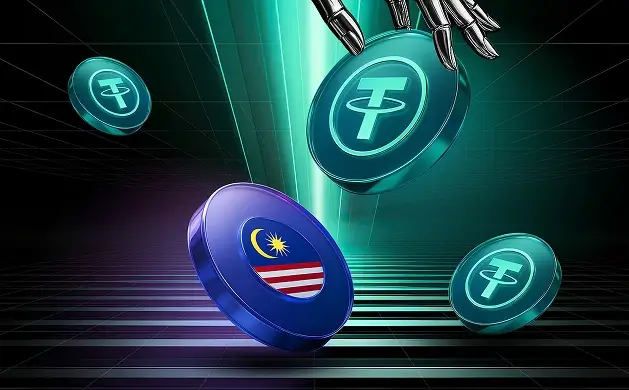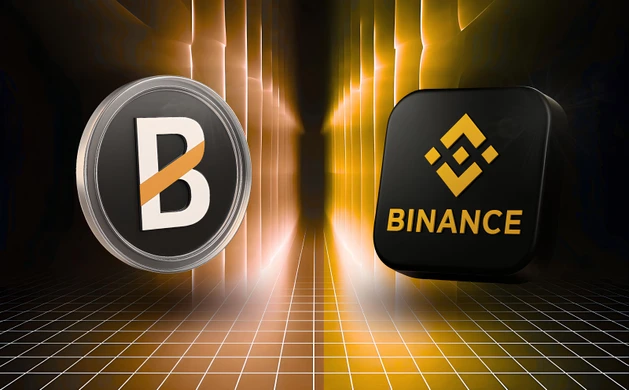How to Buy Tether (USDT) in Malaysia

Summary: Malaysian investors interested in buying, trading, or holding Tether (USDT) can securely deposit Malaysian Ringgit (MYR) via regulated crypto exchanges approved by the Securities Commission Malaysia (SC).
Leading platforms for purchasing USDT in Malaysia include Bybit, Binance, and Kraken, which offer competitive fees, regulatory compliance, and strong liquidity for MYR-USDT trading pairs
Bybit is the top choice to buy Tether (USDT) in Malaysia, offering instant, zero-fee MYR deposits, robust regulatory compliance, and access to 2,000+ cryptocurrencies.
Available Cryptos
Tether (USDT) + 2,000 Cryptos
Trading Fees
0.1% Per Trade
MYR Deposit Methods
Bank Transfer, Cards & more.
Is Buying Tether (USDT) Legal in Malaysia?
Yes, purchasing, trading, and holding Tether (USDT) is fully legal in Malaysia. However, cryptocurrencies like USDT aren't classified as legal tender by Bank Negara Malaysia (BNM), meaning they cannot be officially used for payments or debt settlements in the country.
Crypto transactions are strictly regulated by the Securities Commission Malaysia (SC) and Bank Negara Malaysia (BNM). Investors should exclusively use SC-approved exchanges in Malaysia for compliance and security. Trading on unlicensed exchanges exposes investors to legal and financial risks.
How to Buy USDT in Malaysia
Buying Tether (USDT) in Malaysia is fast and secure through exchanges like Bybit, popular among Malaysians for competitive fees, user-friendly interface, and high liquidity.
You can fund your Bybit account via major banks such as CIMB and Maybank using bank transfer, or through convenient payment methods including Touch 'n Go, GrabPay, debit cards, or credit cards. After depositing Malaysian Ringgit (MYR), you can trade USDT instantly.
Follow these steps to buy USDT on Bybit in Malaysia:
- Create a Bybit Account: Sign up with your email or phone number on Bybit's official website.
- Verify Identity (KYC): Submit a copy of your Malaysian IC or passport for verification.
- Deposit MYR: Log in, select "Buy Crypto," and deposit MYR through any available deposit method.
- Buy USDT: Once funded, enter the desired amount of USDT, review transaction details, and complete your purchase.

MYR to USDT Fees
Malaysian investors exchanging MYR for Tether (USDT) should carefully consider transaction fees. Here's a concise breakdown of common costs:
- Deposit Fees: Bank transfers and digital wallets generally have low or zero fees, while card payments typically incur charges around 1% to 2%.
- Withdrawal Fees: Converting USDT back into MYR involves minimal or no fees. Sending crypto to external wallets usually incurs network (gas) charges, varying with blockchain activity.
- Trading Fees: Popular exchanges like Bybit typically charge around 0.1% per trade. Other platforms may follow a maker-taker structure (maker ~0.1%, taker ~0.2%).
To keep costs low, investors should prioritize low-fee deposit methods and trade on exchanges offering transparent, competitive rates, such as Bybit.
Best Alternative Exchanges to Buy USDT in Malaysia
If you're seeking reliable alternatives to Bybit for buying USDT in Malaysia, consider these secure platforms offering competitive fees and easy MYR deposits:
- Binance: Popular among Malaysians, Binance accepts MYR via bank transfers, debit/credit cards, and P2P payments. It supports 400+ cryptos including USDT, with fees around 0.1%. Key strengths include deep liquidity and extensive trading options.
- OKX: Accepts MYR through bank transfers and cards. Offers over 300 cryptos including USDT, charging clear fees between 0.08%-0.1%. Highlights include strong security and an intuitive mobile app.
- Luno: Licensed by the Securities Commission (SC), Luno supports direct MYR deposits from all local banks. Provides 30 cryptocurrencies, including USDT, with fees ranging from 0.25% to 1%. Ideal for beginners with its simple interface and local compliance.
Malaysian investors should carefully evaluate each exchange's supported coins, deposit methods, fee structures, and security practices when selecting a platform for buying USDT.
.webp)
Tax Implications for Tether (USDT) in Malaysia
In Malaysia, Tether (USDT) and stablecoins are treated as digital assets. Although the Inland Revenue Board of Malaysia (IRBM) hasn't provided explicit USDT-specific tax guidance, existing rules under Section 3 of the Income Tax Act 1967 (ITA) apply.
Frequent USDT trading intended for profit qualifies as business income, taxable at rates from 3% to 30%, depending on total annual earnings. Investors must report such gains under "any other income" in annual tax returns.
Occasional or long-term holding of USDT typically isn't taxed, as Malaysia doesn't impose capital gains tax on digital assets.
Given IRBM’s current stance, USDT investors in Malaysia should keep detailed transaction records and consult local tax experts to ensure compliance.
About Tether (USDT)
Tether (USDT) is a leading stablecoin directly tied to the U.S. dollar, maintaining a consistent 1:1 value to minimise exposure to market volatility. Established by Tether Limited in 2014, USDT runs on prominent blockchains like Ethereum, Tron, and Solana, enabling efficient cross-chain transactions.
Each USDT is backed by reserves of cash equivalents and short-term U.S. Treasury securities, confirmed through regular attestations. In Malaysia, traders widely use USDT for fast fund transfers, hedging against price fluctuations, and participating securely in decentralized finance.

Final Thoughts
Buying Tether (USDT) in Malaysia is legal and uncomplicated when using licensed exchanges like Bybit. To simplify compliance and tax reporting, carefully record your transactions, choose low-cost deposit methods, and seek advice from local tax professionals if trading frequently.
Following these steps will help you safely invest in USDT and manage your crypto effectively.
Frequently asked questions
Can I Convert USDT to Cash in Malaysia?
Yes, you can convert USDT to Malaysian Ringgit (MYR) through licensed crypto exchanges like Bybit or Binance, using direct bank withdrawals to CIMB, Maybank, or digital wallets like GrabPay.
What are the Best Tether (USDT) Wallets for Malaysian Users?
The best Tether (USDT) wallets for Malaysian users include MetaMask for easy DeFi access, Ledger hardware wallets for maximum security, and integrated exchange wallets like Bybit for convenient MYR transactions.
Do I Need to Report USDT Transactions to Malaysian Authorities?
Frequent USDT trading activities intended for profit should be reported as taxable income under Malaysian law. Occasional transactions or long-term holdings typically don't require reporting.

Written by
Antony Bianco
Head of Research
Antony Bianco, co-founder of Datawallet, is a DeFi expert and active member of the Ethereum community who assist in zero-knowledge proof research for layer 2's. With a Master’s in Computer Science, he has made significant contributions to the crypto ecosystem, working with various DAOs on-chain.



.webp)
.webp)





